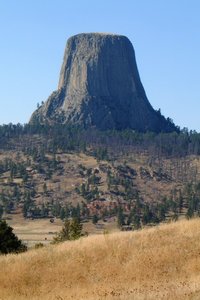Park
|
|
- For the Korean family name Park, see Korean name.
Park.jpg
A park is any of a number of geographic features.
| Contents |
Hunting parks and the parks of country houses
Originally, the term referred to an area maintained as open space where residences, industry and farming were not allowed, often originally so that nobility might have a place to hunt. These were known for instance, as deer parks (deer being originally a term meaning any wild animal). Many country houses in Great Britain and Ireland still have parks of this sort, which since the 18th century have often been carefully landscaped for aesthetic effect. They are usually a mixture of open grassland with scattered trees and sections of woodland, and are often enclosed by a high wall. The area immediately around the house is the garden. In some cases this will also feature sweeping lawns and scattered trees; the basic difference between a country house's park and its garden is that the park is grazed by animals, but they are excluded from the garden.
Public_garden_in_Tours,_France.jpg
Public parks
Today, the primary meaning, based on the original meaning, is an area of open space provided for recreational uses. Parks in this sense are usually owned and provided by the government. Park uses are often divided into two categories: active and passive recreation. Active recreation is that which require intensive development and often involves cooperative or team activity, including playgrounds and ball fields. Passive recreation is that which emphasizes the open-space aspect of a park and which involves a low level of development, including picnic areas and trails.
Country parks
In some countries, especially the United Kingdom, the concept of the country park was popular in the 1970s, and many such parks were established with government support during that time. Country parks are often located near to urban populations, and provide recreational facilities typical of the countryside rather than the town.
National parks
- See main article: national park.
In the United States the concept of preserving unique landscapes for the pleasure of the people of the entire nation was established on June 30, 1864, when President Abraham Lincoln signed the bill creating the Yosemite Grant. But Yellowstone National Park became the first National Park in 1872. A policy of preservation, rather than co-usage as in the National Forests, where grazing, farming and logging are licensed, was implemented four decades later during the presidential administration of Teddy Roosevelt, and Yosemite became a National Park. Tourism and, later, recreation, were the intended purposes of the lands Roosevelt set aside in the system. John Muir was instrumental in this effort. These parks were ultimately termed national parks and today constitute the US National Park System. Similarly, US state governments have also set aside and continue to set aside lands of various sizes to preserve them for the enjoyment of the public. National and regional parks are found in many other countries, and vary greatly in the sort of management and administration which they enjoy. There are also national parks in many other countries; the usage of the term varies greatly from one country to another.
Other meanings
The term park is also used in reference to industrial areas, often termed industrial parks. Some technology research areas are also called research parks. Small environmental areas, often part of urban renewal plans, are called pocket parks. The word park may also be used in community names, such as Oak Park or College Park. Sometimes the active recreational aspect may be expressed in the extreme of naming an amusement park, usually privately-owned.
Notable parks
- See also: List of national parks
- Central Park (in Manhattan, New York)
- Fairmount Park (in Philadelphia)
- Royal Parks of London
- List of urban public parks and gardens of Hong Kong
- Mount Royal Park, Montreal
- Ottawa Greenbelt
- Park von Muskau, Bad Muskau, Germany
- Bois de la Cambre, Brussels, Belgium
- List of parks and gardens in Paris, Francede:Park

